Note: This article originally appeared in the Northern Kentucky Chamber of Commerce’s NKY Business Journal. Written by Tabari McCoy, Scotter Media. Learn more about our free Start the Conversation mental health program and request our tool kit here.
Meg Switala knows employers often have questions about broaching the topic of mental health in the workplace… Not letting fear prevent them from seeking the answers, however, is key.
“From an employer’s perspective, sometimes we’ll hear ‘How will I address concerns if my employees and teammates share their stories, concerns, or need for help, whether it’s a personal issue or supporting others or family members?’ All those things can be very stressful and can impact how you show up at work,” says Switala, Director of Healthy Cultures for TiER1 Performance. “We don’t expect any leader to be an expert in mental illness just as we don’t expect them to be one with other illnesses like a broken bone or cancer. We do, though, want to be able to support them and understand what they are going through in the same way.”
Understanding and finding solutions to those struggles are why she is hopeful the Northern Kentucky region is ready to take the next step and start the conversation.
Conversation Starter
Headquartered in Covington with offices nationwide, TiER1 Performance is a consulting firm whose mission is centered around “Improving organizations through the performance of their people to build a better world.” This is achieved by bringing together consultants with a range of expertise, often in learning, change, communications, technology, creativity, design, organization development and research to enhance performance and culture.
One initiative TiER1 has developed that has become increasingly more in demand is its Start the Conversation (STC) on Mental Health toolkit, developed in partnership with the UC Health Lindner Center of HOPE, the National Alliance on Mental Illness, and ThrivePointe Counseling. The resources are designed to reduce the stigma surrounding mental illness and to encourage conversations about mental health among co-workers, as well as, in families and communities.
A four-week program provided pro-bono by TiER1, STC invites organizations to start a conversation on mental health by showing the effects of mental illness on an organization’s culture, effectiveness, and ultimately its performance. Seeking to remove the stigmas attached to mental health conversations in the workplace, STC also provides guidance for participants on weekly challenges, self-assessments, and discussing and then reflecting on what participants have learned.
TiER1’s efforts have not gone unrecognized as the firm was recognized in December as a winner in the Mental Health Advocacy category of Inc.’s 2022 Best in Business list. Additionally, STC was recognized in 2019 by the CDC as a workplace mental health success story as well as a featured case study by the American Psychiatric Association’s Center for Workplace Mental Health.
“There’s literally no greater thing that you can do to help the performance of your people than to care for their mental health. It really takes only a few leaders to share their stories to normalize all of this. It requires continuous encouragement to act, be aware and engage in self-care on an ongoing basis.” – Meg Switala
Switala says the key to STC’s success – or any similar workplace mental health program – lies in having people willing to truly listen and utilize the resources available to do the work necessary to produce positive change.
“When we first started, it wasn’t necessarily intended to be a direct link to the work that we do, which is helping organizations improve their performance through their people. Since then, we have realized there’s literally no greater thing that you can do to help the performance of your people than to care for their mental health,” she says. “It really takes only a few leaders to share their stories to normalize all of this. It requires continuous encouragement to act, be aware and engage in self-care on an ongoing basis.” The experience of sharing these stories may be the one instance words speak just as loudly as the actions they hopefully produce.
“What really differentiates this program is it creates a lot of opportunities for dialogue. We give interested employees an opportunity to chat with a partner via weekly discussion prompts, attend weekly panel sessions and participate in internal online discussion groups, all reducing the stigma often associated with mental health conversations,” Switala says regarding the weekly sessions, partner chats and journaling that are part of the STC process. “Leadership opening up by supporting this and demonstrating how to normalize this makes a big difference.”
Work-Life Integration
TiER1 feels the term “work-life balance” leads to people often pitting the two subjects against each other as if they are separate entities. Instead, Switala says TiER1 looks to help people recognize “work-life integration,” acknowledging work is integral to our lives and should be a fulfilling experience.
Even if a company is not using the STC program specifically, Switala says addressing mental health is key in helping employees seek holistic, healthy lives where they bring their whole selves to work, which becomes an integral part of who they are. Encouraging dialogue on mental health, normalizing, educating, and supporting are all key for organizations that truly want to thrive and have fully engaged, high-performing employees. She is certain any company will benefit from doing so.
“If you talk to our CEO, Greg Harmeyer, he’ll tell you that prior to launching this, he probably only had a handful of conversations around mental health in the nearly 15 years leading up to the program … Now, it’s a weekly conversation because we’ve normalized it,” she says. “It also creates a foundation for a very trusting and open culture, which is key to any successful organization. You are creating that environment of psychologically safe and secure teams where you’re able to share and to be open with and support one another – that’s making a positive impact.”
Happy Returns
Of course, all the training in the world doesn’t matter if it is not effective. Based on the reviews of some of the organizations that have participated in STC, it seems starting the conversation might be the best thing anyone concerned about their workforce can do. KLH Engineers, Inc. CEO Bob Heil’s firm launched STC training in 2019 after an employee survey revealed 88% of employees had either directly or indirectly been affected by mental illness.
“We started the conversation about mental health to help break the silence and educate our employees on signs, treatment and resources available and we encouraged them to start the conversation with their families and friends as well. After six weeks of open conversations and education sessions about mental illness, our employees gained empathy, understood treatment options and became advocates to break the silence,” he says. “KLH also encouraged its employees to take mental health days as part of their sick day allowance, created an in-house meditation and relaxation room, as well as keeping the conversation going with an online support group. It was a truly life-changing experience thanks to TiER1 and the Lindner Center for HOPE.”
Megan LaDow, Coordinator of Advising Programs at Northern Kentucky University (NKU), agrees. Charged with advisor training and development, LaDow says the university’s Mental Health Advisor Group spearheaded an initiative to increase mental wellness among the student body. With a new group of advisors starting this past March, NKU created its “First Year Student Success Hub (FYSSH) to help ease students transitioning into college. Facilitating STC into the mix this past fall, LaDow says the results proved it was the right move.
“Start the Conversation has been an incredible tool for our team. The program provided a safe and comfortable space for each of us to grow not only our awareness of mental health but also to let us know that we are not alone,” LaDow says. “Having colleagues share stories and experiences helped break down the stigma surrounding mental health … By encouraging participation in STC, the university made it clear that employee wellbeing is a priority and improved mental health is worth our time and effort.”




